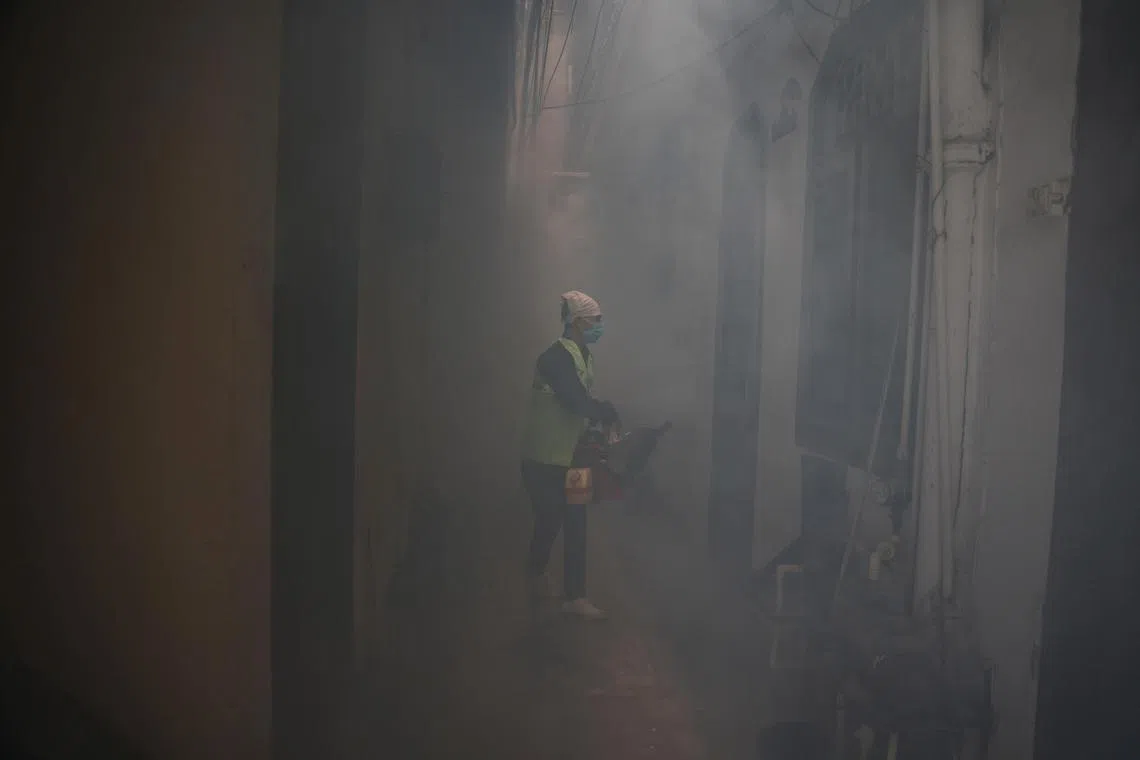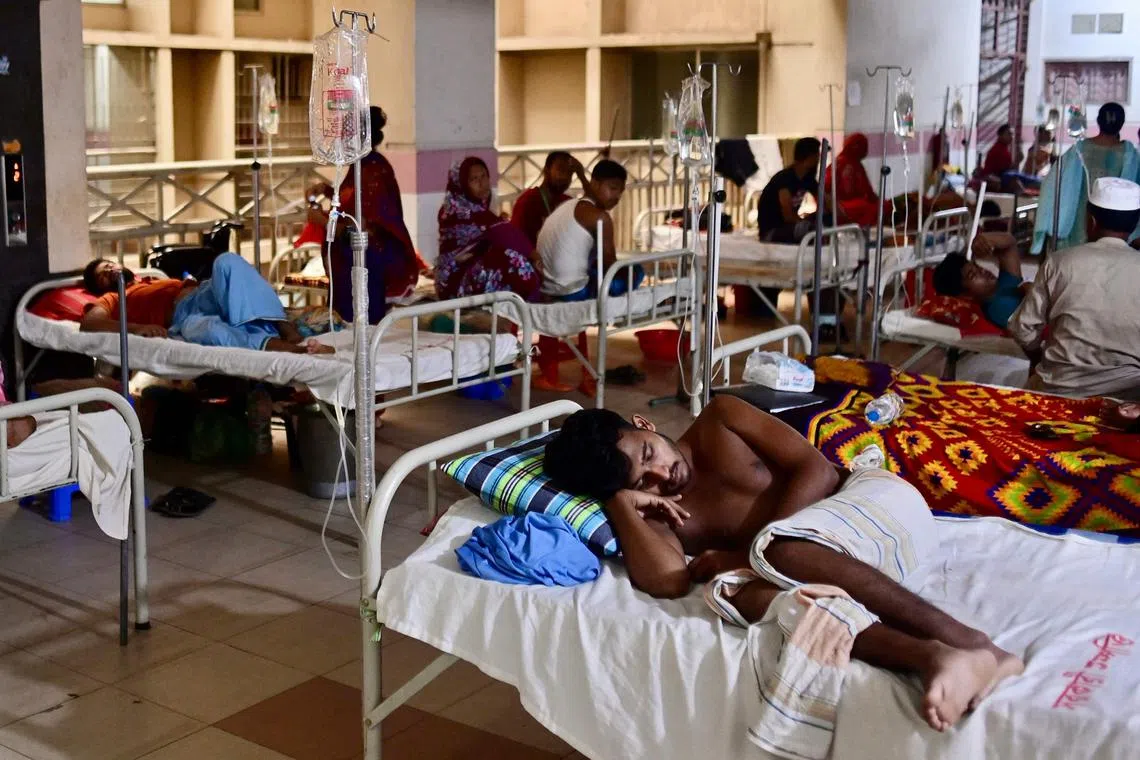Awareness of climate-health link vital in saving millions of lives: WHO official
Sign up now: Get ST's newsletters delivered to your inbox

Mosquitoes and other vectors are finding the perfect conditions to reproduce diseases such as malaria and dengue.
PHOTO: REUTERS
DUBAI – Every year, millions of people die from air pollution linked to fossil-fuel use, heatwaves and other increasingly severe weather-related disasters such as floods and droughts.
“The climate crisis is a health crisis,” said Dr Maria Neira, the World Health Organisation’s (WHO) global public health and environment chief.
But ambitious climate action could reduce human suffering and represent one of the world’s greatest public health opportunities.
She tells The Straits Times’ Green Pulse podcast that the COP28 climate talks could be a turning point, with the conference in Dubai hosting on Dec 3 the first health day for a United Nations climate gathering.
Negotiators from nearly 200 nations are in Dubai to try to agree on an ambitious deal that will pull the world back from the brink of a climate catastrophe, with 2023 already set to be the warmest on record.
Dr Neira said once negotiators understand that climate can affect the health of loved ones, friends and communities, this could be a powerful force in driving action.
“Until now, the narrative around climate change might be a little bit distant from the general public,” she added, pointing to the greater focus on environmental impact or charismatic species such as polar bears.
“The moment you use the health argument, the moment people understand that this is about my lungs, the moment people connect the bad quality of the air we breathe with the asthma case of their child, this is a very easy connection.”
And once that link is made, “I think there will be an incredible increase in the speed or the sense of urgency that we need to give to that”, Dr Neira said.
Yet, for nearly three decades, the annual UN climate talks have failed to fully address the growing health impact of climate change, she noted.
“I’m a medical doctor myself, and when I was working at the hospital, when you are in front of an emergency, you need to take a decision immediately. You cannot postpone it for 28 years,” she said, pointing to COP28 being the 28th annual conference of nations that are party to the UN’s Framework Convention on Climate Change.
And that urgency is only increasing, covering a wide range of impacts for people and the environment. “I don’t see any disease that is not at risk of increase due to the conditions created by climate change,” she added.

People suffering from dengue fever at Mugda Medical College and Hospital in Dhaka, Bangladesh, on Oct 3, 2023. Climate change has been linked to dengue transmission.
PHOTO: AFP
Apart from extreme weather events, mosquitoes and other vectors are finding the perfect conditions to reproduce, sparking a surge in diseases such as malaria and dengue.
Other risks include damage to crops, loss of agricultural land, water shortages, large-scale displacement of people, and worsening mental health from climate impact and anxiety about the future.
“Air pollution is one of the major challenges associated with climate change. Every year, we have seven million premature deaths caused by exposure to air pollution.
“And this is because of the combustion of fossil fuels. So imagine the incredible health benefits we could obtain if we mitigate the causes of climate change,” Dr Neira said.
Heatwaves are also an increasing threat, particularly in nations where many do not have access to air-conditioning or cooling centres.
“For heatwaves, the mortality is increasing. And we see that for the over-65s. We can have an increase of even 30 per cent in mortality rates. So we need to prepare for this terrible impact,” Dr Neira said.
“People working outside, construction workers, illegal workers, they have no protection at all.”
In many cities, climate change is causing temperatures to rise to dangerous levels, in part because buildings and roads are trapping more heat. Helping vulnerable populations and adapting cities to high temperatures, including longer and hotter heatwaves, is vital, she said.
Tackling climate change could lead to one of the greatest public health opportunities, Dr Neira noted.
“If you tackle the causes of climate change, the health benefits can be enormous. If we reduce the bad quality of the air we breathe every year, we could save at least five million deaths.
“And so if you postpone by one year, it means that you are not saving the lives of five million people with all the chronic diseases that this represents, putting at risk the quality of life of people, the price that we are paying in our hospitals as well.”
And for health day on Dec 3, this is one of the key messages to climate negotiators at COP28.
“If we are able to pass that message to the negotiators, for them to understand that they are not just negotiating about the level of emissions, they are negotiating with our health, that this is about human health.
“That might be the final engine to motivate more action,” said Dr Neira.



